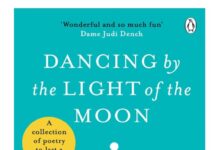Sometimes we forget to appreciate what’s already given to us, to appreciate everyone, to appreciate our existence, the beautiful boons that have been given to us, loving humanity, loving people, loving the nature around us, and rather, not interfering with nature. The great poet of the nature, William Wordsworth, has left an indelible mark on the world of literature. His sonnet, “The World Is Too Much With Us,” published in 1807, remains a timeless reflection on humanity’s estrangement from nature. This poem is a critique of the materialism and industrialisation that characterised the early 19th century, and it continues to resonate in our contemporary, fast-paced world.

The Central Theme: Alienation from Nature
“The world is too much with us; late and soon, Getting and spending, we lay waste our powers;— Little we see in Nature that is ours; We have given our hearts away, a sordid boon!”
The opening lines of the sonnet set the stage for Wordsworth’s critique. The phrase “The world is too much with us” suggests that people are overly preoccupied with worldly affairs, both “late and soon,” meaning at all times. This preoccupation with “getting and spending” highlights a materialistic society that values economic transactions over the natural world. Wordsworth laments that in our pursuit of wealth, we have become disconnected from nature, which he sees as a profound loss.
The Beauty of Nature
“This Sea that bares her bosom to the moon; The winds that will be howling at all hours, And are up-gathered now like sleeping flowers; For this, for everything, we are out of tune; It moves us not.”
In the next segment, Wordsworth describes the natural beauty that humanity fails to appreciate. The imagery of the sea exposing itself to the moon and the winds howling like “sleeping flowers” evokes a sense of tranquillity and wonder. However, Wordsworth points out that people are “out of tune” with this beauty; it no longer moves us. This disconnection is both a personal and collective tragedy.

A Desire for a Simpler Belief System
“Great God! I’d rather be A Pagan suckled in a creed outworn; So might I, standing on this pleasant lea, Have glimpses that would make me less forlorn; Have sight of Proteus rising from the sea; Or hear old Triton blow his wreathèd horn.”
In a dramatic turn, Wordsworth expresses a longing for a return to ancient, pagan beliefs. By invoking pagan gods like Proteus and Triton, he suggests that these mythological figures, rooted in nature, offer a sense of connection and meaning that modern life lacks. The poet wishes for a simpler time when people were more attuned to the natural world, its wonders and appreciated nature’s beautiful boons.
William Wordsworth’s “The World Is Too Much With Us” is a powerful reminder of the importance of maintaining a connection with nature. In an age where materialism and industrialisation often take precedence over the environment, Wordsworth’s words are more relevant than ever. His lament over humanity’s alienation from nature serves as a call to action, urging us to appreciate and preserve the natural world.
Further Reading




